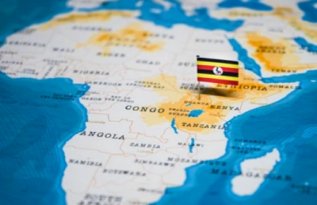Uganda NewsRead all the latest Uganda news headlines online together with information about the challenges the news media landscape in Uganda faces. The main Uganda news headlines are below however you can also read news from each Africa country by using the drop-down menu. |
Uganda News | Uganda News | Uganda News | Uganda News |
|
 |
Uganda News ChallengesWhilst Uganda boasts a multitude of newspapers, radio stations, television channels, and burgeoning online platforms, the freedom of these outlets and the journalists who staff them remains a persistent and often precarious struggle. Uganda's media journey began in the colonial era, with early newspapers playing a role in the independence movement. Post-independence, the media experienced periods of both relative openness and severe repression, particularly during the dictatorial regimes of Idi Amin and Milton Obote II. The coming to power of the National Resistance Movement (NRM) in 1986 initially ushered in a period of greater liberalization, leading to a significant expansion of private media outlets. This growth fostered a more diverse media environment, laying the groundwork for the dynamic, albeit challenging, landscape seen today.
The legal framework governing media in Uganda presents a dual narrative. On one hand, Article 29 of the 1995 Constitution guarantees freedom of speech and expression, including freedom of the press. On the other hand, a raft of restrictive laws provides the state with considerable leeway to control and prosecute journalists. These include laws on sedition, criminal defamation, computer misuse (often used to target online critics), the Public Order Management Act (POMA), and anti-terrorism legislation. While some of these laws claim to maintain public order or national security, critics argue they are frequently wielded to silence dissent and stifle critical reporting, creating a "chilling effect" that encourages self-censorship. The challenges to press freedom in Uganda extend far beyond legal restrictions. Journalists frequently face physical assault, arbitrary arrest, and detention, particularly when covering protests, opposition activities, or sensitive corruption issues. Media houses have been raided and closed, journalists' equipment confiscated, and their movements restricted. The impunity with which such actions are often carried out emboldens perpetrators and further intimidates the press. Furthermore, economic pressures, such as the withdrawal of government advertising from critical media outlets or the precarious employment status of many journalists, can also serve as powerful tools of control. The rise of digital media has introduced new dimensions to the struggle for press freedom. While online platforms offer new avenues for expression and information dissemination, they have also become targets for state control. Measures like the now-repealed Over-The-Top (OTT) tax on social media usage, internet shutdowns during elections or protests, and increased surveillance capabilities demonstrate the government's intent to control online narratives. Journalists and citizens engaging in online criticism risk facing charges under the Computer Misuse Act, further narrowing the space for independent reporting. Despite these formidable challenges, Ugandan media continues to play a vital role. Brave journalists and media houses persistently strive to inform the public, investigate corruption, highlight social injustices, and hold those in power accountable. They often do so at great personal risk, driven by a commitment to public service. Local civil society organizations, media associations like the Uganda Media Women's Association (UMWA) and Human Rights Network for Journalists-Uganda (HRNJ-U), alongside international press freedom advocacy groups, work tirelessly to document violations, provide legal aid to journalists, and advocate for meaningful legal and policy reforms. |




 Today, the Ugandan media ecosystem is diverse. Print media is dominated by major dailies like the state-owned New Vision and the privately-owned Daily Monitor, alongside numerous smaller publications. Radio remains the most pervasive medium, especially in rural areas, with hundreds of stations broadcasting in various local languages. Television is also widespread, and the digital space has exploded, with online news portals, blogs, and social media platforms becoming increasingly influential, particularly among the youth and urban populations. This diversity suggests a robust public sphere, yet beneath the surface, significant pressures undermine genuine press freedom.
Today, the Ugandan media ecosystem is diverse. Print media is dominated by major dailies like the state-owned New Vision and the privately-owned Daily Monitor, alongside numerous smaller publications. Radio remains the most pervasive medium, especially in rural areas, with hundreds of stations broadcasting in various local languages. Television is also widespread, and the digital space has exploded, with online news portals, blogs, and social media platforms becoming increasingly influential, particularly among the youth and urban populations. This diversity suggests a robust public sphere, yet beneath the surface, significant pressures undermine genuine press freedom.


